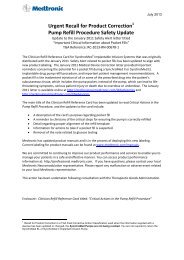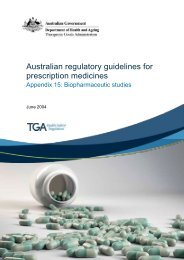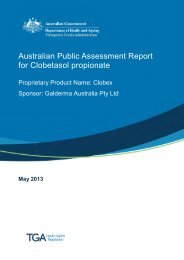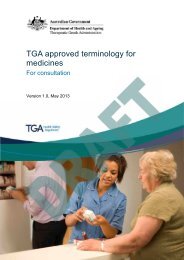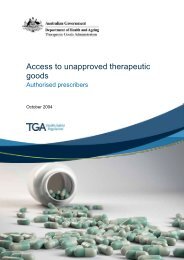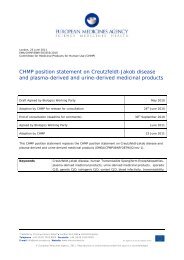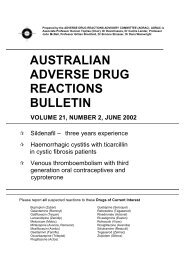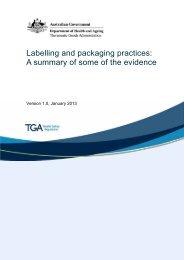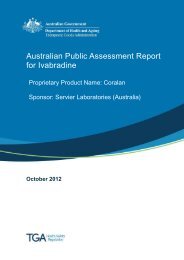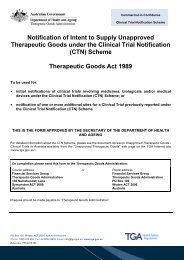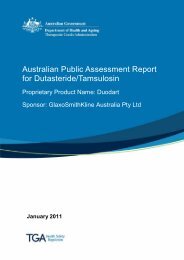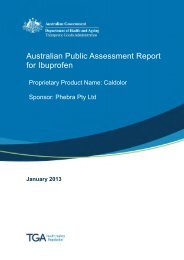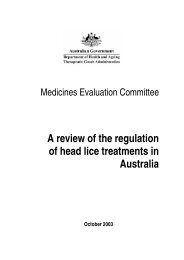Quality Matters Safety Matters Pty Ltd (QMSM) (pdf,260kb)
Quality Matters Safety Matters Pty Ltd (QMSM) (pdf,260kb)
Quality Matters Safety Matters Pty Ltd (QMSM) (pdf,260kb)
Create successful ePaper yourself
Turn your PDF publications into a flip-book with our unique Google optimized e-Paper software.
B.12 Assessing the significance of outcomes<br />
As stated in previous correspondence, the use of the terms ‘statistically significant’ and ‘clinical significant’ are<br />
not uniformly applicable to all complementary medicines or indeed all indications. Consider if complementary<br />
medicines should be used in circumstances where the following indications are of ‘clinical significance’. In each<br />
of these cases, in order to achieve ‘clinical significance’ it seems to be apparent that medical intervention would<br />
be required to diagnose and treat the condition, not a desired attribute of complementary medicines and a<br />
circumstance in conflict with the ‘requirements’<br />
- Relief of the symptoms of allergies<br />
- May help increase joint mobility associated with arthritis<br />
- To help maintain blood circulation to the peripheral areas of the body such as the legs, hands and feet.<br />
- Aids or assists in the relief of constipation.<br />
- Relief or treatment of diarrhoea<br />
- Liver tonic. Aids digestion<br />
- For the symptomatic relief of tinnitus.<br />
- For the symptomatic relief of hangover<br />
- Male support. Balances and supports normal male physiology and function.<br />
- Relief of menstrual pain.<br />
Application of the ‘qualifier’ ‘determining clinical significance’, clinical benefit, cost and side effects while<br />
applicable to registered medicines does not appear to accompany the wider community’s desire for ‘natural<br />
medicines’. While an appreciable degree of efficacy is always merited, the guidance provided appears not to<br />
appreciate this most significant attribute of complementary medicines.<br />
B.13 Further incontinency is noted in the example provided on page 63.<br />
Where as previous reference to a disease have indicated that ALL symptoms should be addressed, this<br />
example (alleviating symptoms of common cold) does not address ALL of the symptoms of the common cold<br />
(for example sneezing, nasal congestion etc)<br />
The guidance provided for substantiating claims related to traditional medicines appears to enable significantly<br />
more latitude than does the analogous guidance for scientific medicines. This observation includes<br />
- Can claim with evidence for only some of the symptoms in a named disease<br />
- Can say treatment of stomach aches (page 57)<br />
COMMERCIAL-IN-CONFIDENCE<br />
talktous@qualitymatterssafetymatters.com.au Po Box 7028, Loganholme, 4129 Page 6 of 8<br />
Phone 0439 782 869 ABN: 99 121 846 053



